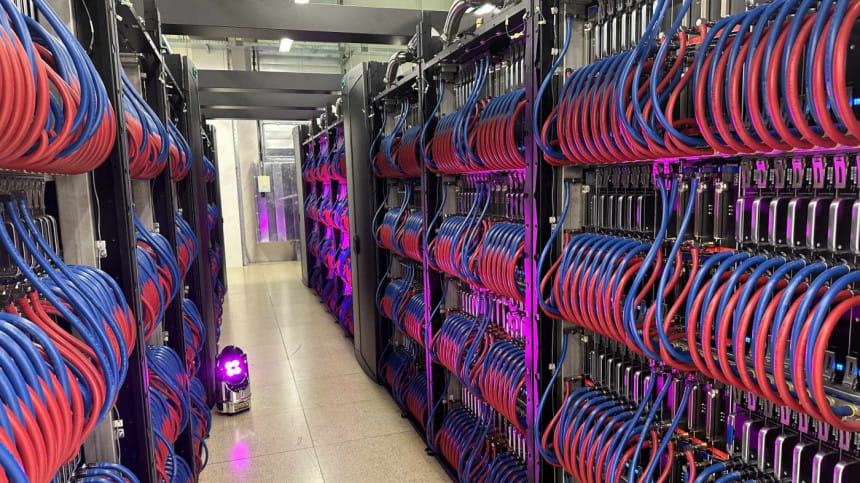New Swiss supercomputer ranked sixth most powerful in the world

Switzerland has recently unveiled the country's new supercomputer, 'Alps', which has already been ranked as the sixth most powerful supercomputer in the world. The supercomputer, which was only 60% operational when the 'Top 500' global supercomputer rankings were published this June, is expected to rise in rank once fully functional.
Housed at the Swiss National Supercomputing Centre (CSCS) in Lugano, 'Alps' is set to play a pivotal role in advancing artificial intelligence (AI) and scientific research globally, according to a recent report by AFP. "The main mission of 'Alps' is to tackle complex scientific challenges in fields such as medicine, climate research, and space exploration," said Thomas Schulthess, director of CSCS, as per the report.
The immense power of 'Alps' comes with one trade-off—its high energy consumption. The machine requires an estimated 15 to 21 million Swiss francs (USD 17.7–24.8 million) per year just to keep running, making it one of the most energy-intensive systems of its kind.
However, Schulthess pointed out that the performance is unmatched, with calculations that would take a standard laptop 40,000 years to complete being accomplished by 'Alps' in just one day. It currently covers an area of 116 square meters, with 33 cabinets filled with sophisticated hardware.
The supercomputer is already contributing to Switzerland's federal weather service, MeteoSwiss, which is using 'Alps' to generate highly detailed weather forecasts. According to Schulthess, the forecasts on the MeteoSwiss app are powered by simulations run on this supercomputer, thus providing more accurate models of Switzerland's mountainous landscape.
ETH Zurich, the Swiss university that led the development of 'Alps,' envisions the supercomputer as a cornerstone for advancing artificial intelligence. Andreas Krause, head of ETH Zurich's AI Centre, remarked, "With 'Alps,' we can now train complex AI models for critical applications such as medical research and climate studies."
Beyond its research capacity, 'Alps' is part of Switzerland's broader ambition to become a global hub for transparent and trustworthy AI solutions. "Alps is not just a machine—it represents our vision for a future shaped by knowledge and progress," said Guy Parmelin, Swiss Federal Councillor and Minister of Economy, Education, and Research, during the inauguration ceremony.

 For all latest news, follow The Daily Star's Google News channel.
For all latest news, follow The Daily Star's Google News channel. 








Comments